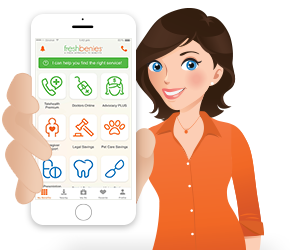THE SPLEEN: LEAST USEFUL ORGAN IN THE HUMAN BODY?
This is a guest post by Dr. Val Jones who works with our Doctors Online partners at eDocAmerica.
The spleen has been the target of much ridicule, made fun of by medical students and dismissed as nothing more than a "graveyard for red blood cells." In the Middle Ages, the spleen was associated with melancholy, and in more modern times, anger (perhaps you've heard the expression "vent your spleen" – which means to let your anger out).
If you were a spleen, you'd probably have some serious self-esteem issues.
While it's true that we can live without our spleens, they do have an important health contribution to make. The spleen is a soft, squishy organ, normally about the size of a fist and it sits just behind the stomach and under the left rib cage. It is a blood filter and storage system, recycling red blood cells and storing clotting components called platelets.
Most importantly, the spleen produces white blood cells, which form the foundation of our immune systems (to fight flu and pneumonia for example). In a sense, the spleen is like a blood transfusion center – an emergency back up organ for blood products.
The spleen is more famous for the trouble it can cause than the contributions it makes. There are some diseases that cause massive enlargement of the spleen, putting it at risk for rupture. When the spleen breaks, it bleeds very heavily and can cause a life-threatening surgical emergency.
What can harm the spleen?
- Mononucleosis (also known as "mono") is a fairly common viral infection that attacks one of our white blood cell lines, the monocytes. It is caused by the Epstein-Barr virus, and usually produces a very sore throat and severe fatigue which can last for weeks or months. The spleen filters and captures the sick monocytes and they build up to the point of sometimes enlarging the organ from a fist to a football!
- Cancer – it is not uncommon for some cancers to spread to the spleen, and some blood cancers directly enlarge the spleen (lymphoma and leukemia).
- Traumatic Injury - Sometimes spleens are damaged in traumatic injuries, such as car accidents or falls, and they need to be surgically removed due to bleeding.
- Malaria or Parasitic Infections – while this is rare in the United States, travelers should be aware that there is a risk of splenic enlargement from such diseases.
- Sickle Cell Disease – this is a genetic disease that causes red blood cells to develop abnormal shapes. The spleen will hoard these deformed cells, and can become very enlarged from them.
- Liver Cirrhosis – an enlarged liver can cause back up of blood to the spleen and increase its size as well.
When the spleen is bloated from any condition, it can inadvertently store and hoard too many blood products, especially platelets. People with enlarged spleens may have a low circulating platelet count, which predisposes them to bleeding problems. This spells double trouble if the spleen ever breaks apart from its large size.
What can you do if your spleen is enlarged? First of all, contact sports should be avoided at all costs. Any person who has been diagnosed with mononucleosis, for example, should be very careful not to risk bumps and impact to the left side of their chest and abdomen. It is fairly easy for physicians to determine if a spleen is larger than normal – ultrasounds, CTs and MRIs can determine the size of the organ. Since mono has no treatment or cure, it takes time for it to resolve on its own.
In some cases, enlarged spleens cause enough trouble with their cell-hoarding and bleeding risk to require removal. This is a fairly simple procedure, with few long term consequences (other than not being able to "vent your spleen" anymore).
If you do have your spleen removed, it is important to get annual flu vaccines, and the pneumonia vaccine every five to ten years to boost your immunity to these potential infections.
Although the spleen may be one of the least vital organs, it can create serious problems if it bleeds, so a healthy respect for the spleen is essential. I'm sure your spleen would appreciate a little self-esteem boost from you! You can sing the R-E-S-P-E-C-T song to it, I won't tell.














